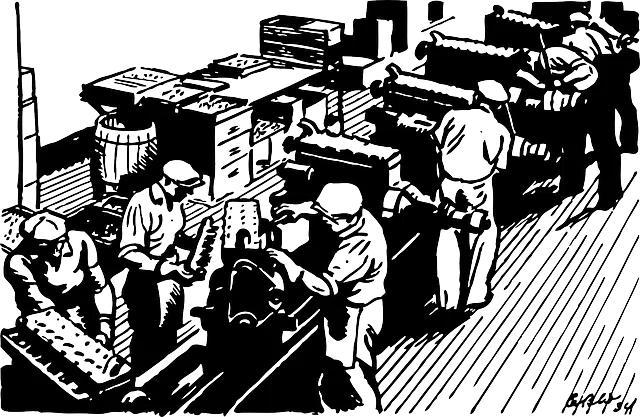
Taylorism is a method that aims to organize work activity.
The concept of Taylorism comes from the postulates of the American Frederick Winslow Taylor , an economist and engineer born in 1856 and died in 1915 . Taylor devised a method to organize work activity that is based on the specialization of workers, the control of the time allocated to each activity and the division of tasks .
Taylorism, therefore, refers to the organization of activities carried out in the work environment with the intention of maximizing productivity . It is usually defined as a system of scientific or rational organization of work tasks, which relies on mechanization to increase efficiency.
What is Taylorism?
What Taylorism does is divide the work into different sequences and record the time each one takes. Each worker works in a sequence: that is, he is not in charge of the different steps involved in the work. Thus, it specializes in a single stage of the production process.
A complex process is thus divided into several simpler tasks . The work of each worker is timed to minimize loss of time . Taylorism also relies on payment for productivity, encouraging workers to work faster.

The division of tasks, time control and specialization are the pillars of Taylorism.
Changes brought about by this method
Scholars of Taylorism agree in emphasizing that it generated a notable amount of changes in the field of industry. Specifically, it brought with it modifications such as these:
-He got the workers to specialize, thus increasing their skill and, therefore, the contribution they made to the production and profits of the company in question.
-It gave the opportunity to have more control over the work in the plant of the different operators.
-It allowed, thanks to the division of labor on which it was based, costs to be reduced and tasks to be reorganized much better.
Taylorism and Fordism
Taylorism is also associated with Fordism , which is based on mass production and the use of an assembly line . The idea is that the worker does not have to travel to carry out his task , but rather that the pieces reach him through a machine that allows the continuous development of production.
We have to state that Fordism is also considered, like Taylorism, to have introduced a series of notable changes such as these:
-He opted for mass production.
-It gave the opportunity for lower prices for products when they reached the market.
-It allowed us to achieve a greater earning capacity.
-Work processes became much more mechanized.
The notion in education
Within the field of education there is also talk of Taylorism or the Taylorist method. In this case, we can say that it is an alternative that is based, above all, on the student's academic results. That is to say, the most important thing of all are the grades you obtain and not what the pedagogical processes could also be.
However, in recent years this type of method has fallen into disuse in favor of other alternatives that are considered more appropriate for the times we live in, where effort must also be valued regardless of the result achieved.
